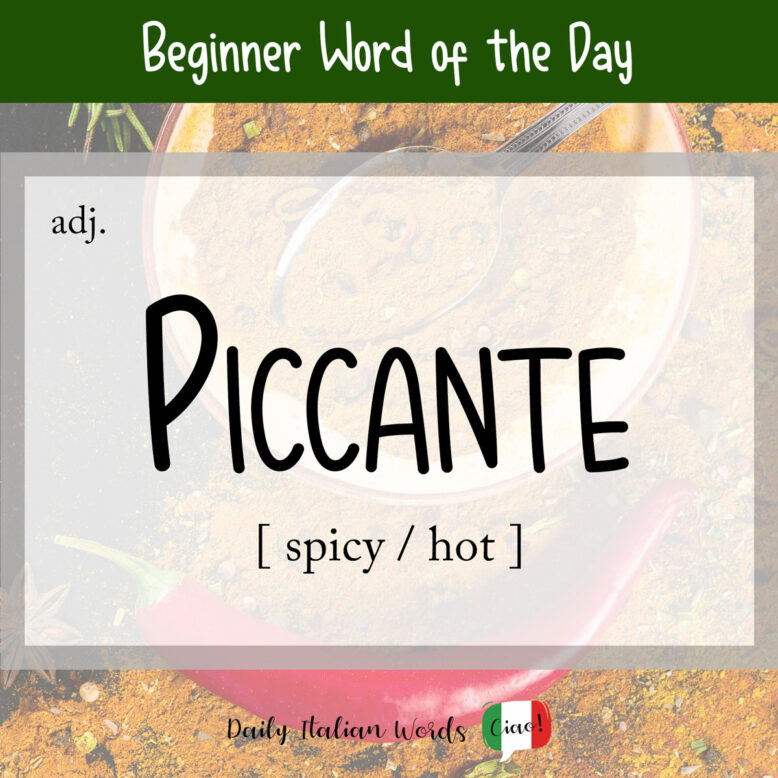Any food that causes a burning sensation in the mouth when tasted can be called piccante, which is the word for spicy or hot in Italian. It comes from the French word piquant of the same meaning.

The plural form of this adjective is piccanti. There is no distinction between masculine and feminine: it’s always piccante (singular) and piccanti (plural) regardless of the gender.
Some popular spicy foods in Italian include:
- salamino piccante = spicy salami
- salsa piccante = hot sauce
- olio piccante = spicy oil

Piccante, when referring specifically to cheeses such as provolone piccante and gorgonzola piccante, actually means sharp or strong rather than spicy or hot.
Note: If you want to say that a dish is flavoured with lots of spices (but not necessarily hot), it is better to use the word speziato instead.
In a figurative sense, piccante can also translate as risqué, saucy, racy and sometimes sarcastic when talking about a joke, story or conversation for example.
Maria ci ha raccontato dettagli piccanti sulla loro relazione.
Maria told us spicy details about their relationship.
You may also hear the diminutive piccantino being used to describe something that is slightly or moderately spicy / saucy.
Heather Broster is a graduate with honours in linguistics from the University of Western Ontario. She is an aspiring polyglot, proficient in English and Italian, as well as Japanese, Welsh, and French to varying degrees of fluency. Originally from Toronto, Heather has resided in various countries, notably Italy for a period of six years. Her primary focus lies in the fields of language acquisition, education, and bilingual instruction.


